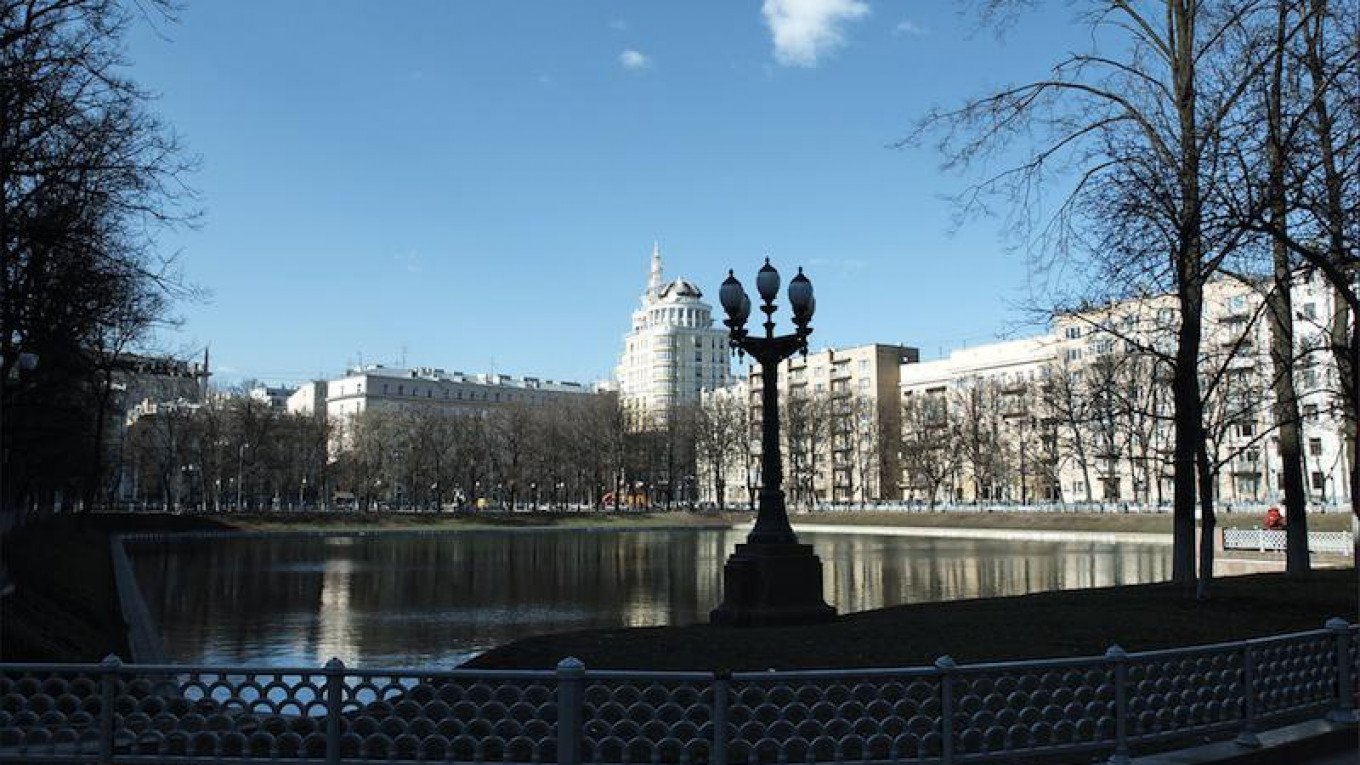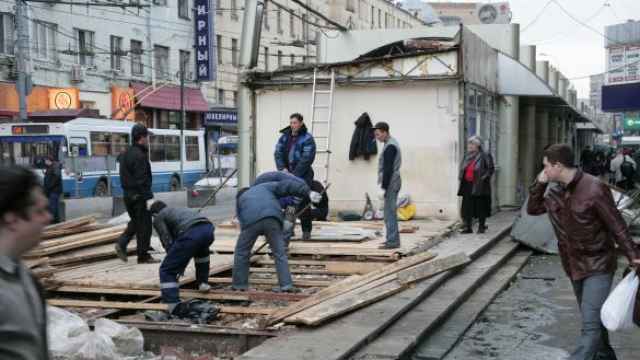Life often has a way of showing just how insipid things are in Moscow.
The most recent vivid example happened at Patriarch’s Ponds, the elite central district perhaps best known abroad for its starring role in Mikhail Bulgakov’s “The Master and Margarita.”
A long-running conflict there speaks volumes about how things work in the capital city. The plot of this story is simple: the residents of Patriarch’s Ponds wanted peace and quiet. Dozens of small cafés and eateries had opened in the area over the previous couple of years, and all were vying for popularity. The place was bustling with activity every night and weekend. At some point, the locals got fed up and decided to do something about it.
Ordinary folk would have quietly thrown in the table napkin in a war with local restaurateurs. But the good people of Patriarch’s Ponds are made of tougher stuff. Several years ago, Russian media reported that Deputy Mayor Pyotr Biryukov brought in submachine gun-wielding men to force café owners to remove tables on the sidewalk under his apartment window to reduce the noise.
This spring, Biryukov gave local residents an opportunity to hold an informal meeting with Moscow Mayor Sergei Sobyanin, three of his deputy mayors and the neighborhood prefect. Former Alfa Bank vice president and local do-gooder Alexander Gafin agreed to organize it. The seasoned communicator chose not to run straight to the mayor with his problems. He first approached the City Duma, but beat a hasty retreat. “I took one look at those deputies and immediately understood what sort of people we had voted into office,” he said. That meeting with municipal leaders paid off.
Soon, the Patriarch’s Ponds neighborhood was pulled from the “My Street” program that had paralyzed other neighborhoods around Moscow. But that did nothing to stop the constant noise from café patrons. Finally, one local resident resorted to extreme measures, hanging a banner across Malaya Bronnaya Ulitsa that read: “Mayor Sobyanin! Residents demand quiet!” Police quickly removed the offending missive, but not before city deputy Yelena Tkach managed to photograph and post it on social networks.
Within 10 days, the Central District prefect and prosecutor “reached an agreement” with café owners to close their establishments by 11 p.m. This story of one little borough’s victory over City Hall beautifully illustrates the reality of life in Moscow— or in any Russian city for that matter. The residents of Patriarch’s Ponds are what Russians like to call “shishki” — big wigs, people with influence — and they had a perfectly legitimate complaint. Like people everywhere, they wanted only to get a good night’s sleep and they were ready to battle anyone who violated that right.
The difference was that they had government connections on their side, and they could not have prevailed in their struggle without it. Even those celestial beings realized that city deputies could do nothing to help them because no mechanism existed for righting injustices, and no uniform set of rules existed for enforcing order.
Could they have resolved their complaints through private negotiations? Unlikely. During a conversation with reporters after their victory, three of the seven locals present — that is, 43 percent of this sampling of the Ponds’ finest — managed to insult Muscovites who live in less affluent neighborhoods beyond the Third Transport Ring, calling them first “locusts,” then “good-for-nothings,” and, finally, “people of a different level.”
When the mayor is the only political entity empowered to make changes, there are actually two kinds of good-for-nothings. Those who live next to the deputy mayor, and those who don’t.
A Message from The Moscow Times:
Dear readers,
We are facing unprecedented challenges. Russia's Prosecutor General's Office has designated The Moscow Times as an "undesirable" organization, criminalizing our work and putting our staff at risk of prosecution. This follows our earlier unjust labeling as a "foreign agent."
These actions are direct attempts to silence independent journalism in Russia. The authorities claim our work "discredits the decisions of the Russian leadership." We see things differently: we strive to provide accurate, unbiased reporting on Russia.
We, the journalists of The Moscow Times, refuse to be silenced. But to continue our work, we need your help.
Your support, no matter how small, makes a world of difference. If you can, please support us monthly starting from just $2. It's quick to set up, and every contribution makes a significant impact.
By supporting The Moscow Times, you're defending open, independent journalism in the face of repression. Thank you for standing with us.
Remind me later.






